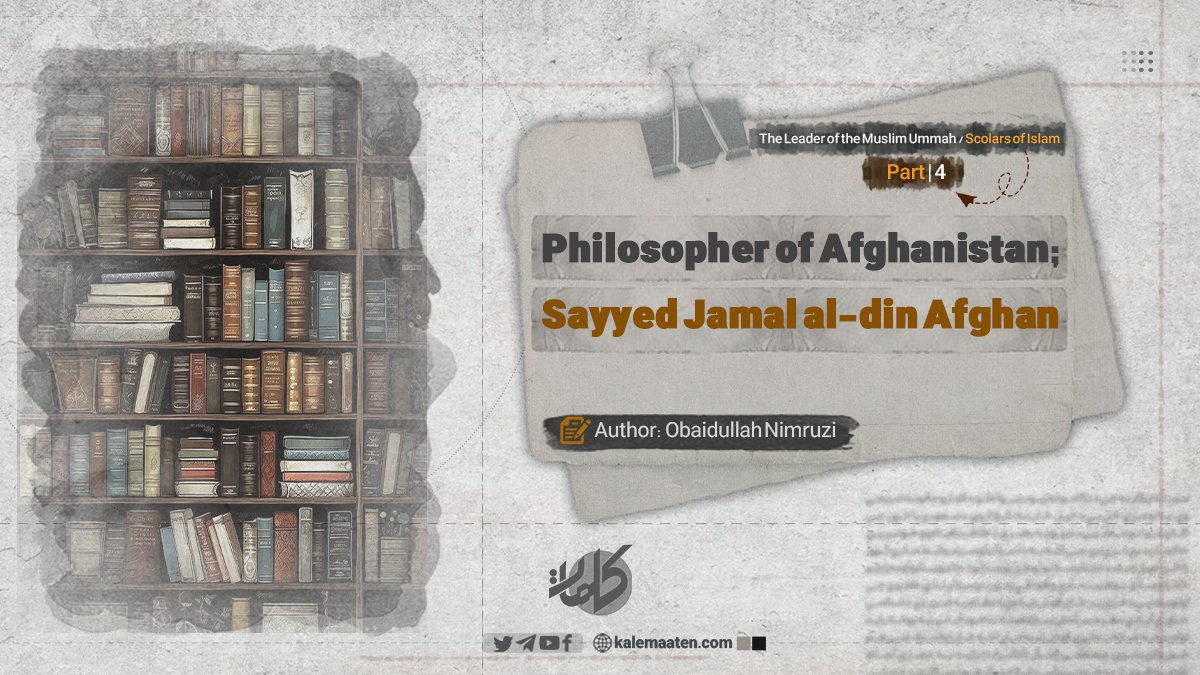
Author: Obaidullah Nimruzi
Philosopher of Afghanistan; Sayyed Jamal al-Din Afghan (Part 4)
Imam Ghazali’s View of Sayyed Jamal al-Din Afghan
Imam Muhammad Ghazali (may Allah have mercy on him) states: “Jamal ad-Din Afghani was a person of deep wisdom and insight. He applied extraordinary wisdom in his decision-making, and due to his high intelligence and sharp nature, he was able to take wise positions in the most complex historical situations.”
What distinguished him as a leader was his self-esteem, trust in Allah, and his intellectual and spiritual independence.
One of the most famous stories about Afghani’s personality is his meeting with Sultan Abdul Hamid II of the Ottoman Empire. During this meeting, the Sultan asked him to refrain from criticizing the Shah of Iran. Jamal ad-Din initially remained silent, but when the Sultan’s insistence increased, he simply responded, “I forgave him,” and ended the discussion. This reaction astonished the Sultan and his courtiers.
Such behavior was unprecedented among scholars of that time because religious scholars typically appeared humble and submissive before sultans, often thanking them for their gifts. However, instead of flattery or compromise, Afghani acted independently, treating kings and powerful figures as equals and sometimes even as inferiors. Historians have remarked, “Jamal ad-Din never considered himself inferior to the caliph or other rulers.”
These characteristics stemmed from his absolute trust in Allah, his deep connection with his faith, and his steadfastness in moral and religious principles. He never allowed worldly position or power to influence his will or beliefs. Although some have accused him of collaborating with groups such as the Freemasons, his qualities and actions indicate that these accusations are unfounded. Not only was he not a dependent man, but he also fiercely upheld his independence and his commitment to Allah.
Imam Ghazali’s Comparison of Afghani
Imam Muhammad Ghazali, a prominent thinker, highly praised Jamal al-Din Afghani and compared him to the verses of Al-Mutanabbi, the famous Arab poet. Ghazali wonders whether Al-Mutanabbi composed these verses for himself or for Jamal al-Din Afghani:
“He went into exile, not considering anyone great except Allah, and not accepting any ruling except from his Creator. He forged his path only in the midst of storms and hardships, and nothing but dignity and greatness marked his journey. People ask, ‘Who are you, and what do you want in every city?’ And he answers, ‘Something greater than naming.’”
These verses clearly illustrate that Afghani was never satisfied with anything less than the pleasure of Allah and was always striving to reform society and achieve justice. He not only did not retreat in the face of hardships and conspiracies but continued on his path with courage and perseverance.
Continues…


